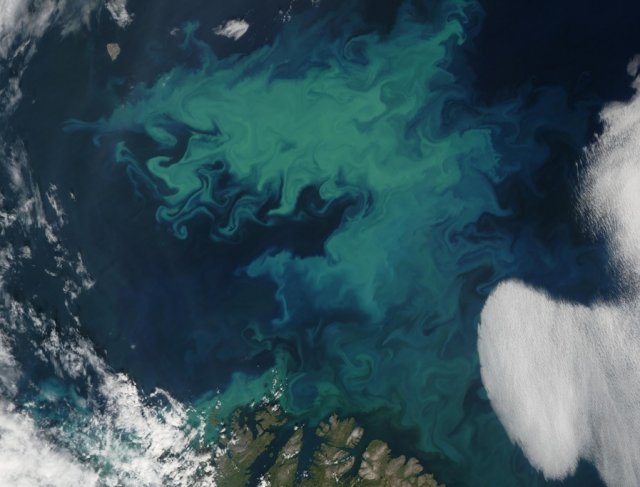Ocean acidification could affect rising temperatures
Ars Technica » Scientific Method 2013-08-29

Climate change’s oft ignored twin, ocean acidification, is usually thought of as a biological rather than a climatic problem. They’re seen as parallel (carbon dioxide emissions are a cause of each) but separate (the effects of ocean acidification don’t depend on changes in climate). Some recent studies are showing that, true to the interconnected nature of, well, nature, ocean acidification may actually have a climatic effect of its own.
Ocean acidification is a decrease in the pH and carbonate concentration of ocean water caused by CO2 pumped into the atmosphere. It’s generally bad news for critters with calcium carbonate shells or skeletons, and acidification has even been shown to affect fish. Studies in which CO2 is added to closely-monitored sections of marine habitat have shown that one of the many outcomes appears to be a decrease in dimethylsulfide produced by phytoplankton.
This turns out to be pretty interesting, because this is the biggest source of biologically created sulfur that makes its way into the atmosphere, where sulfur compounds are hugely important for the formation of clouds. (They help create the cloud condensation nuclei that cloud droplets grow around.) Since cloud cover affects the amount of sunlight reflected back into space, this has the potential to affect climate.
Read 7 remaining paragraphs | Comments




